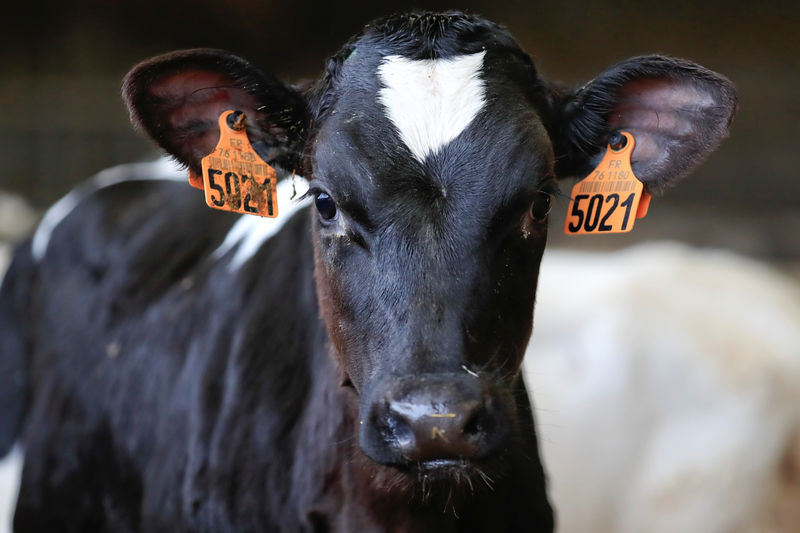By Lucien Libert
PARIS (Reuters) - A row over changes to a quality label for camembert cheese reached the French parliament on Wednesday as supporters of a traditional raw-milk recipe distributed samples of the creamy, odorous speciality to lawmakers.
The cheese, which takes its name from a village in Normandy and dates back to the 18th century, is caught in a tussle between lovers of age-old cheesemaking methods based on raw milk and supporters of modern dairy practices like pasteurisation.
Producers agreed a compromise last year revising terms used for the "Camembert de Normandie" protected origin scheme starting in 2021.
The deal allows industrial producers using pasteurized milk to join the quality label system in return for respecting conditions like using Normandy breed cows for some milk supply. Meanwhile, raw-milk users will be able to add a special mention on their products.
But traditionalists like lawmaker Richard Ramos say the new rules are a mistake that lead to a bland industrial product, rather than a cheese with long roots in French gastronomic heritage.
"When you open and taste a Camembert you have the idea of Frenchness," he said as he left raw-milk cheeses in the letterboxes of his 577 colleagues at France's National Assembly, the lower house of parliament.
In the heartland of camembert production, dairy farmer Charles Breant in the Normandy village of Bermonville shared Ramos' concerns about the badge of quality.
"If pasteurized milk is authorised it will mean the end of the Protected Designation of Origin (PDO) because 97 or 98 percent of camembert cheeses will be pasteurized and so will lose its connection with the land," he said.
Lactalis, the world's largest dairy company and a regular target for critics of the new scheme, said in a statement Ramos's initiative was misleading and failed to show Lactalis was supporting camembert both through raw and pasteurized milk.
Agriculture Minister Didier Guillaume told lawmakers he supported the revamped quality scheme, which he said was "not a Trojan horse for industrial firms".

"Raw-milk camembert is not in danger," he said.